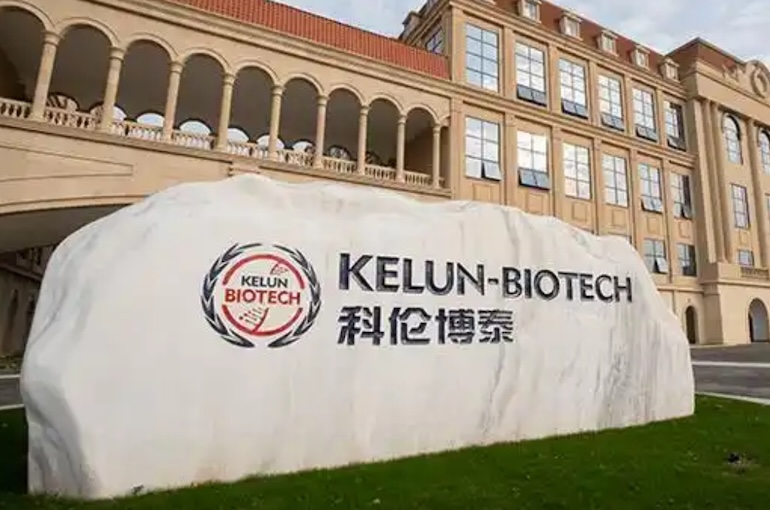 Kelun-Biotech’s ADC Cancer Treatment Is Approved for Sale in China
Kelun-Biotech’s ADC Cancer Treatment Is Approved for Sale in China(Yicai) Nov. 28 -- Kelun-Biotech Biopharmaceutical, the holding subsidiary of Chinese drugmaker Kelun Pharmaceutical, has received the regulatory approval to market its antibody-drug conjugate targeted cancer therapy in China.
The National Medical Products Administration authorized the use of sacituzumab tirumotecan, the first domestically developed trophoblast cell-surface antigen 2-directed ADC, for use in adult patients with unresectable locally advanced or metastatic triple negative breast cancer who have received at least two prior systemic therapies, the Chengdu-based company announced yesterday.
There are 357,000 new cases of breast cancer and 75,000 deaths in Chinese women annually, Kelun-Biotech said, citing a research on cancer incidence and mortality in China by Han Bingfeng. Chemotherapy has often poor efficacy and high toxicity and side effects for triple negative breast cancer, so it is vital to explore more therapeutic means to improve the clinical benefit, the firm added.
“The successful launch of sac-TMT officially opens up a new pattern for the treatment of patients with 2L+ advanced TNBC,” said Micheal Ge, chief executive officer of Kelun-Biotech. “We expect that its excellent clinical efficacy and safety results will significantly enhance the clinical benefits and improve the quality of life of patients with advanced TNBC.
“In the future, we will continue to explore the clinical value of sac-TMT in other indications, maximize its market potential, and satisfy the clinical needs of patients nationwide,” Ge added.
In May 2022, Kelun-Biotech licensed the exclusive rights to develop, use, manufacture, and commercialize sac-TMT in all territories outside the Chinese mainland, Hong Kong, Macao, and Taiwan to Merck Sharp & Dohme.
MSD has already paid Kelun-Biotech an initial payment of USD47 million for sac-TMT and agreed to pay a total of nearly USD1.4 billion in milestone payments at different development stages.
A cancer treatment similar to sac-TMT approved for marketing in China is Trodelvy (sacituzumab govitecan-hziy), developed by US biopharmaceutical company Gilead Sciences. Last year, Trodelvy’s global sales soared 56 percent to almost USD1.1 billion from the previous year, becoming a blockbuster drug for the first time.
In the development of new-generation ADC cancer treatments, Chinese companies are at the same starting stage as global competitors, biopharmaceutical industry veteran David Preston told Yicai. To some extent, it is probably safe to say Chinese firms are ahead because they work harder, he added.
The first players to enter the market always have stronger pricing power, Preston said, noting that the more companies enter the market, the more prices will decline.
Kelun-Biotech is in a leading position at the moment but will surely face fierce competition in the future, Preston believes.
ADC therapies are difficult to imitate because of their complex development process. Their prices are expected to remain relatively high for a long time so that developers can generate high profits.
According to a forecast from research firm Evaluate, the size of the ADC market will likely exceed USD30 billion by 2028, accounting for nearly 10 percent of the global cancer treatment market.
Editor: Tang Shihua, Futura Costaglione